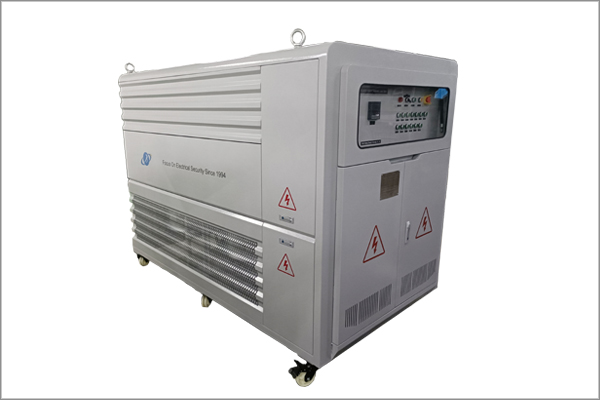Main requirements for backup generators in data centers
Time:2024-03-18
As the core infrastructure of modern information society, the stable operation of data center is very important to ensure the continuity of all kinds of business. In terms of power supply, backup generator is an important part of the data center emergency power system, and its performance and quality directly affect the safety and stability of the data center. Therefore, a backup generator in a data center needs to meet the following key requirements:
First, high reliability requirements
The backup generator should have high reliability and be able to start quickly and provide stable power in the event of a failure of the main power supply. Generators should choose well-known brands, reliable quality products, and through strict factory testing and on-site commissioning, to ensure its stable performance and reliable operation.
Second, sufficient capacity
The capacity of the backup generator should meet the power demand of the data center in the case of emergency. In the design stage, it is necessary to fully consider the equipment load of the data center, power growth and other factors, and choose the appropriate generator capacity. At the same time, the generator should have overload protection ability to cope with sudden high load situation.
Third, high degree of automation
The standby generator should have a high degree of automation, including automatic start, automatic switching, automatic parallel and other functions. When the main power supply fails, the generator should be able to automatically start and switch to the emergency power supply mode to ensure continuous operation of the data center equipment. At the same time, the generator should also have remote monitoring and fault diagnosis functions, so that the operation and maintenance personnel can timely grasp the operating status of the equipment and carry out maintenance.
4. Low fuel consumption
In order to reduce the operating costs of the data center, the backup generator should choose an engine with a low fuel consumption rate. In addition, the generator should also have good fuel economy characteristics to reduce fuel consumption and emissions pollution.
Noise and vibration control
Data centers usually have strict noise and vibration requirements, so the backup generator should have good noise and vibration control performance. Generators should adopt a low noise design and take effective vibration reduction measures to ensure a quiet and comfortable environment in the data center.
6. Easy maintenance
The maintenance of the standby generator should be convenient and fast, so that the operation and maintenance personnel can perform routine maintenance and troubleshooting. Generators should be designed with easy-to-replace parts and easy-to-operate maintenance interfaces, while providing detailed maintenance manuals and technical support so that operations personnel can quickly resolve problems.
To sum up, backup generators in data centers have high requirements in terms of reliability, capacity, automation, fuel consumption, noise and vibration control, and maintenance convenience. When selecting and configuring a backup generator, fully consider the actual situation and requirements of the data center to ensure that the generator can meet the emergency power supply requirements of the data center and ensure its stable running.
News Recommendation
-
 2024-09-11
2024-09-11TRIUMPH LOAD EXHIBITING AT Enlit Europe 2024 -BOOTH 7.H08
-
 2023-04-21
2023-04-21TRIUMPH LOAD EXHIBITING AT DATA CENTER WORLD GERMANY 2023-BOOTH F909
-
 2023-04-06
2023-04-06TRIUMPH LOAD EXHIBITING AT ELECTRIC POWER TECH KOREA 2023 – Booth G109
-
 2022-05-05
2022-05-05What is the role of ac load bank for power supply?
-
 2022-05-05
2022-05-05What is the role of the load bank?


